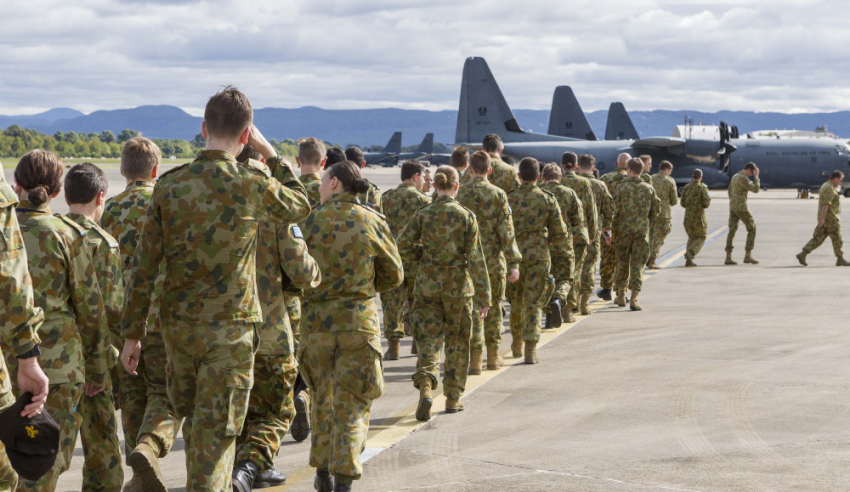The federal government should dispel “shapeless war talk” and institute a formal review assessing the nation’s security threats to enhance strategic clarity, one Lowy Institute analyst observes.
According to Ben Scott, director, Australia's Security and the Rules-Based Order Project at the Lowy Institute, the recent escalation in war-like rhetoric from Australia’s policymakers must be supported by clear guidance from an annual threat assessment.
Scott argues that discourse from Australia and its allies around potential conflict with China has set up a “narrow framework”, which limits Australia’s strategic options.
“China’s rise dominates our increasingly complex national security environment, but far from exclusively,” he writes.
Scott lists a number of other potential national security challenges, which include the ongoing threat of Islamic terrorism, and Iran and North Korea’s nuclear programs.
He argues that Australia and its allies must consider cunning strategies to address these threats before they worsen.
“Before these challenges present us with a single defining choice – between war and peace or acquiescence and victory – they will pose evermore smaller but no less difficult choices,” he continues.
“Partly because war has become so costly, many states are putting more effort into seeking advantage through all means short of war.
“China has proved particularly adept at competing in this grey zone: from economic coercion to aggressive cyber activity to establishing facts on the water in the South China Sea.”
Scott contends that Australia has “played catch-up”, coming to realise the national security implications of domains previously thought to be purely economic, commercial or technological.
“To succeed in this environment, Canberra will need to make smarter choices, and more of them. That requires improving our national security decision-making structures and debate,” Scott adds.
Scott proposes that Australia institute an annual threat assessment, modelled on that delivered to the US Congress by the US Director of National Intelligence.
Canberra’s equivalent, he writes, could be led by the director-general of the Office of National Intelligence (ONI), Andrew Shearer.
“[The director-general] should provide a clear and calibrated public overview of the threat landscape,” he writes.
Much of the recent discussion of Australia’s next war portrays it as something that would happen to Australia, rather than the result of a decision which Canberra would make.
Scott claims that such a review would ensure Australia learns from past mistakes, helping to deliver better national security outcomes.
“Although our previous wars are often portrayed as a straightforward defence of liberty, Australia’s motivations – and the factors playing into our decisions – have almost always been more complex than that,” he writes.
“With the benefit of hindsight, we can see that Australia and its allies have made mistakes.
“Vietnam was not the first domino. Saddam Hussein did not have an active weapons of mass destruction program. And the new national security consensus holds that the two decades’ global war on terrorism was – at least in its scale – a distraction from the challenges posed by a revisionist China and Russia.”
Scott concludes: “Our need for smarter national security decisions will only grow.”
Get involved with the discussion and let us know your thoughts on Australia's future role and position in the Indo-Pacific region and what you would like to see from Australia's political leaders in terms of partisan and bipartisan agenda setting in the comments section below, or get in touch with



